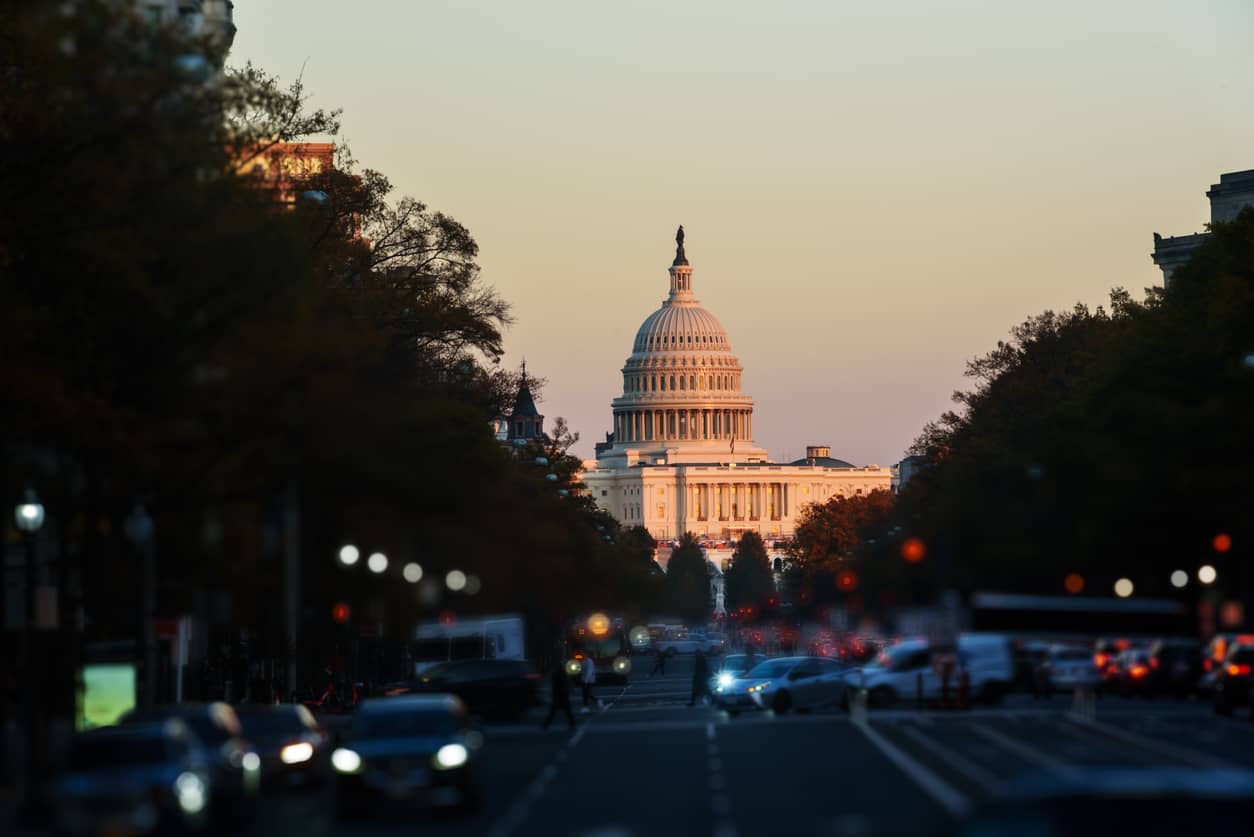
Trump Signs Sweeping One, Big, Beautiful Bill Act Into Law
One Big Beautiful Bill Resource Center
CSH's OBBBA Resource Center is here to help you navigate major changes to the tax landscape.
Resource CenterOn July 4, President Trump signed into law the expansive One, Big, Beautiful Bill Act (OBBBA), a comprehensive piece of legislation totaling 870 pages. True to his campaign promises, the tax-related provisions of the bill build on the foundation of the Tax Cuts and Jobs Act (TCJA) passed during his first term. The OBBBA not only extends many TCJA measures but also includes new initiatives championed by the president—though several are temporary—and reduces a range of tax incentives related to clean energy.
While the law makes permanent several key tax benefits, it also eliminates others, including some that were originally set to return after 2025. Below is a summary of the most significant changes affecting both individual and business taxpayers. Unless otherwise noted, the new provisions take effect for tax years beginning in 2025.
Key Changes Affecting Individuals
Makes permanent the TCJA’s individual tax rates of 10%, 12%, 22%, 24%, 32%, 35% and 37%
Makes permanent the near doubling of the standard deduction. For 2025, the standard deduction increases to $15,750 for single filers, $23,625 for heads of households and $31,500 for joint filers, with annual inflation adjustments going forward
Makes permanent the elimination of personal exemptions
Permanently increases the child tax credit to $2,200, with annual inflation adjustments going forward
Temporarily increases the limit on the deduction for state and local taxes (the SALT cap) to $40,000, with a 1% increase each year through 2029, after which the $10,000 limit will return
Permanently reduces the mortgage debt limit for the home mortgage interest deduction to $750,000 ($375,000 for separate filers) but includes mortgage insurance premiums as deductible interest
Permanently eliminates the deduction for interest on home equity debt
Permanently limits the personal casualty deduction for losses resulting from federally declared disasters and certain state declared disasters
Permanently eliminates miscellaneous itemized deductions except for unreimbursed educator expenses
Permanently eliminates the moving expense deduction (with an exception for members of the military and their families in certain circumstances)
Expands the allowable expenses that can be paid with tax-free Section 529 plan distributions
Makes permanent the TCJA’s increased individual alternative minimum tax (AMT) exemption amounts
Permanently increases the federal gift and estate tax exemption amount to $15 million for individuals and $30 million for married couples beginning in 2026, with annual inflation adjustments going forward
For 2025–2028, creates an above-the-line deduction (meaning it’s available regardless of whether a taxpayer itemizes deductions) of up to $25,000 for tip income in certain industries, with income-based phaseouts (payroll taxes still apply)
For 2025–2028, creates an above-the-line deduction of up to $12,500 for single filers or $25,000 for joint filers for qualified overtime pay, with income-based phaseouts (payroll taxes still apply)
For 2025–2028, creates an above-the-line deduction of up to $10,000 for qualified passenger vehicle loan interest on the purchase of certain American-made vehicles, with income-based phaseouts
For 2025–2028, creates a bonus deduction of up to $6,000 for taxpayers age 65 or older, with income-based phaseouts
Limits itemized deductions for taxpayers in the top 37% income bracket, beginning in 2026
Establishes tax-favored “Trump Accounts,” which will provide eligible newborns with $1,000 in seed money, beginning in 2026
Makes the adoption tax credit partially refundable up to $5,000, with annual inflation adjustments (no carryforwards allowed)
Eliminates several clean energy tax credits, generally after 2025, including the clean vehicle, energy-efficient home improvement and residential clean energy credits
Permanently eliminates the qualified bicycle commuting reimbursement exclusion
Restricts eligibility for the Affordable Care Act’s premium tax credits
Creates a permanent charitable contribution deduction for non-itemizers of up to $1,000 for single filers and $2,000 for joint filers, beginning in 2026
Imposes a 0.5% floor on charitable contributions for itemizers, beginning in 2026
Key Changes Affecting Businesses
Makes permanent and expands the 20% qualified business income (QBI) deduction for owners of pass-through entities (such as partnerships, limited liability companies and S corporations) and sole proprietorships
Makes permanent 100% bonus depreciation for the cost of qualified new and used assets, for property acquired after January 19, 2025
Creates a 100% deduction for the cost of “qualified production property” for qualified property placed into service after July 4, 2025, and before 2031
Increases the Sec. 179 expensing limit to $2.5 million and the expensing phaseout threshold to $4 million for 2025, with annual inflation adjustments going forward
Increases the cap on the business interest deduction by excluding depreciation, amortization and depletion from the calculation of “adjusted taxable income”
Permanently allows the immediate deduction of domestic research and experimentation expenses (retroactive to 2022 for eligible small businesses)
Makes permanent the excess business loss limit
Prohibits the IRS from issuing refunds for certain Employee Retention Tax Credit claims that were filed after January 31, 2024
Eliminates clean energy tax incentives, including the qualified commercial clean vehicle credit, the alternative fuel vehicle refueling property credit and the Sec. 179D deduction for energy-efficient commercial buildings
Permanently renews and enhances the Qualified Opportunity Zone program
Permanently extends the New Markets Tax Credit
Permanently increases the maximum employer-provided child care credit to $500,000 ($600,000 for small businesses), with annual inflation adjustments
Makes permanent and modifies the employer credit for paid family and medical leave
Makes permanent the exclusion for employer payments of student loans, with annual inflation adjustments to the maximum exclusion beginning in 2027
Makes permanent the foreign-derived intangible income (FDII) and global intangible low-taxed income (GILTI) deductions and the minimum base erosion and anti-abuse tax (BEAT)
Expands the qualified small business stock gain exclusion for stock issued after the date of enactment
CSH Insight: Navigating the One, Big, Beautiful Bill Act
The provisions outlined above represent only a portion of what’s included in the sweeping OBBBA legislation. Many more rules, thresholds, and transitional considerations apply—and with them, a wave of forthcoming regulatory guidance.
At CSH, we’re here to help you make sense of these changes, identify strategic opportunities, and proactively manage your tax exposure under the new law. Connect with our team to assess how these developments may impact your individual or business planning.



